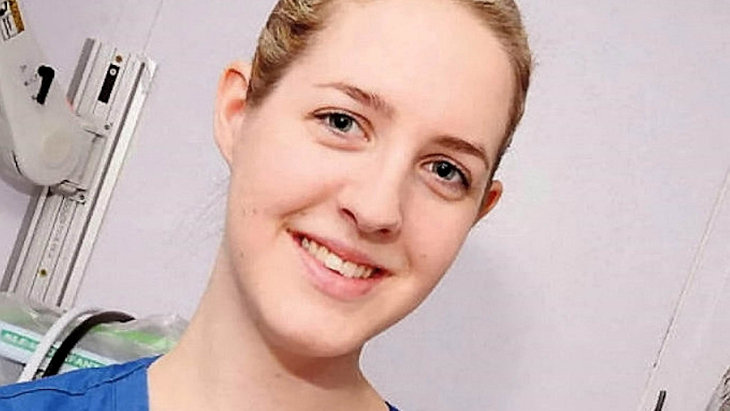 Iran’s Attack on Israel
Iran’s Attack on Israel


4 min read
A nurse in England was charged with murdering 8 babies in the neonatal unit. The charges are shocking, but not surprising.
A friend of Lucy Letby, 30, described her as seeming “like a kindhearted person.”
The comment was offered last week after Ms. Letby, who had worked as a nurse at the Countess of Chester Hospital in northwest England, was charged with the murder of eight babies and the attempted murder of 10 others in the hospital’s neonatal unit.
The hospital conducted an internal inquiry after an inordinate number of premature babies had suffered heart and lung failure since 2016.
Ms. Letby not only worked at the hospital’s neonatal unit but had been active in a fundraising campaign to build a new one, expressing her hope that it would “provide a greater degree of privacy and space.” In retrospect, her desire for privacy reads somewhat less innocently than it must have seemed at the time.
If the charges against Ms. Letby shock you, that’s understandable; they are shocking. But they should not be surprising. We’ve seen this horror before.
In 2002, for instance, Charles Cullen, a nurse who had worked in hospitals in New Jersey and Pennsylvania, told investigators that he had ended the lives of 30 to 40 patients over 16 years in order to “alleviate pain and suffering.”
Other known medical personnel killers include Beverley Allitt, an English nurse who murdered four children and tried to murder another three in 1991; Massachusetts nurse Kristen Gilbert, who also murdered four patients and attempted to murder another two; and Donald Harvey, an orderly who claimed to have murdered 87 patients in hospitals in Kentucky and Ohio.
There are others.
Though some of the medical facility murderers may have been mentally deranged, some clearly saw themselves as “angels of mercy,” doing the right thing by dispatching people, even babies, whom they saw as facing lives that the killers felt were not worth living.
Believing Jews are guided by the Torah, not the zeitgeist, and we see the life of a human being as on an entirely different plane.
Unfortunately, larger society is increasingly seeing things very differently. It has begun to follow the path of Professor Peter Singer, the Princeton philosopher who is well-known for his advocacy of active, legal euthanasia for severely handicapped infants and the elderly.
Professor Singer, who heads the university’s Orwellianly named Center for Human Values, has characterized human infants as the moral equivalent of animals. “The life of a newborn,” he has written, “is of less value than the life of a pig, a dog or a chimpanzee.”
Asked by The New York Times several years back what idea, value or institution that the world takes for granted today he thinks may disappear in the next few decades, the professor responded: “The traditional view of the sanctity of human life.”
Unfortunately, the vanishing act, with no small amount of help from Professor Singer, seems well underway.
In the United States, physician-assisted suicide is legal in ten jurisdictions, and according to a 2018 Gallup poll, fully 72 percent of Americans favor legalizing it. It is already legal in Canada, Switzerland and a number of other countries.
Including the Netherlands, where a 15-year-old with parental consent can enlist a doctor’s help in killing herself; and if she can just wait until her sixteenth birthday, her parents will have no say in the matter. Nor need she be suffering any terminal medical condition; “emotional” pain is enough.
Some Dutch doctors, moreover, are reportedly known to choose, on their own, to “terminally sedate” patients in pain – that is to say, administer a dose of a narcotic that will not only alleviate pain but bring about death.
All in the name of mercy. After all, what good is a life if one is severely health-compromised, or very old or immobile? Or when a condition is “terminal”?
Such “merciful” folk might wish to ponder the plight of those with 23rd chromosome pair syndrome, which is invariably fatal.
Sufferers are susceptible to a host of maladies, including heart disease, high blood pressure, asthma and various cancers, and they are likely to suffer bouts of depression over the course of their lives.
They are also prone to headaches, nosebleeds, painful joints and broken bones. At some point, they can become so disabled that they require others to care for them.
The syndrome is quite common.
It’s what we call normal human life.
It merits mercy, to be sure. But expressed as preserving – not ending – it.
